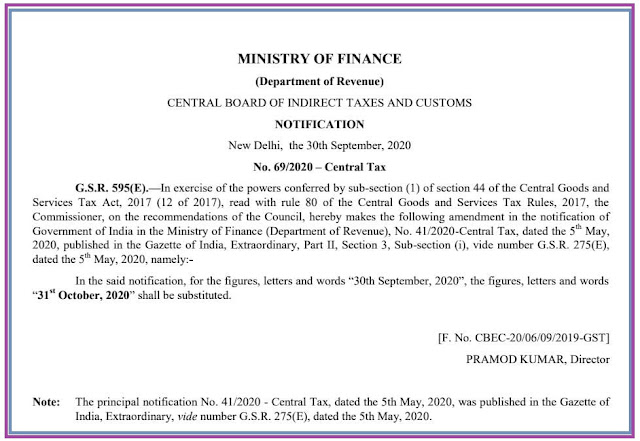De-linking of Credit Note/Debit Note from invoice, while reporting them in Form GSTR 1/GSTR 6 or filing Refund and single credit note for multiple invoices Till date, it was mandatory to mention details of original invoice number, while reporting a Credit Note or Debit Note in GSTR-1 or GSTR-6 return. Now the taxpayers have been provided with a facility on the GST Portal to: Single credit note or debit note can be issued in respect of multiple invoices and can be reported in GSTR-1 or GSTR-6. Debit /Credit Notes can be issued with tax amount, but without any taxable value also i.e. if credit note or debit note is issued for difference in tax rate only, then note value can be reported as ‘Zero’. Only tax amount will have to be entered in such cases. Choose the note supply type as Regular, SEZ, DE, Export etc., to identify the table to which such credit note or debit note pertains. Indicate Place of Supply (POS) against each credit note or debit note, to identify the supply type i.e. In








